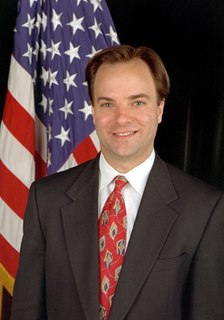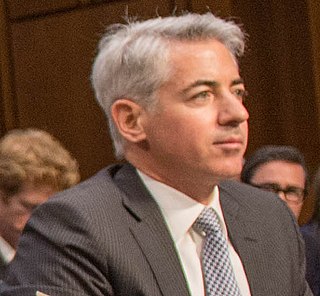Top 1200 Economic Development Quotes & Sayings - Page 16
Explore popular Economic Development quotes.
Last updated on April 22, 2025.
'Sustainable Development' is an oxymoron. 'Development' in all it's senses entails expansion and wanting more. Continual expansion and wanting more are unsustainable. Globally we are approaching the point when the only sustainable way forward is to want less. Indeed, the choice element may be removed from us and we will just have to have less. In the meantime we still have some choices about how to influence our future
The achievements of past struggles and the aspirations of an entire nation are [being] undone and erased.... No Agent Orange or steel pellet bombs, no napalm, no toxic chemicals: a new phase of economic and social (rather than' physical) destruction has unfolded. The seemingly neutral and scientific tools of macro-economic policy constitute a non-violent instrument of recolonization and impoverishment.
Immigrant families have integrated themselves into our communities, establishing deep roots. Whenever they have settled, they have made lasting contributions to the economic vitality and diversity of our communities and our nation. Our economy depends on these hard-working, taxpaying workers. They have assisted America in its economic boom.
Society's double behavioral standard for women and for men is, in fact, a more effective deterrent than economic discrimination because it is more insidious, less tangible. Economic disadvantages involve ascertainable amounts, but the very nature of societal value judgments makes them harder to define, their effects harder to relate.
At each stage of development the child needs different resources from the family. During the first year, a variety of experience and the availability of the parents for attachment are primary. During the second and third years, stimulation of language development is critical. During the years prior to school entrance, information that persuades children they are loved becomes critical, and during the school years it is important for children to believe that they can succeed at the tasks they want to master.
The female brain may confer distinctive economic advantages, to the benefit of all, and we should, therefore, pursue seriously having equal numbers of women in topic economic and financial posts. If we persist in having unequal numbers, then we should advantage the women and have a smaller percentage of men.
Economic growth is the key to everything. But once you have economic growth, it is important that we reach out to people who live in the shadows, the people who don't seem to ever think that they get a fair deal. And that includes people in our minority community; that includes people who feel as though they don't have a chance to move up.
If the DHS insists, as bureaucracies are apt to do, that open-source must be certified via a sanctioned, formal process, it will interfere with the informal process of open-source itself. It seems to me the DHS is trying to turn an open-source development project into a Microsoft (or IBM or Oracle) software development project. And we know what that means: more, not fewer, errors -- security and otherwise.
Without the heart to ground it and open it to who we really can be as human beings, the brain is a very dangerous machine. A machine that is saying: we've got to have economic growth; we've got to have unending economic growth, otherwise societies will collapse. And yet there should be something saying: wait a minute, this isn't going to work.
Russia and China have maintained that people prize stability over freedom and that as long as the central State creates conditions for economic growth, people will be complacent and will be willing to literally sell away their rights. In fact, this very economic growth will eventually catch up with these regimes.
The phenomenon of economic ignorance is so widespread, and its consequences so frightening, that the objective of reducing that ignorance becomes a goal invested with independent moral worth. But the economic education needed to reduce such ignorance must be based on austere, objective, scientific content—with no ideological or moral content of its own.
Reasons to be positive. The economic downturn could be the catalyst for positive change. It should be translated into the wake-up call we need for a major change in aspirations and lifestyles to save humanity from the ecological and economic disaster that would otherwise result from continuing on the high carbon and resource depleting path we have been pursuing
The single biggest stimulus to the economy are the unemployment benefits we're paying. These people go out and they spend the money. They go out and they have to get by to everything from paying their mortgage or buying food or just getting by. It has a significant impact on economic growth and the continuation of economic growth.
The illegitimate use of a state by economic interests for their own ends is based upon a preexisting illegitimate power of the state to enrich some persons at the expense of others. Eliminate that illegitimate power of giving differential economic benefits and you eliminate or drastically restrict the motive for wanting political influence.
We raised the matter of an agreement that was reached at the Growth and Development Summit, which was that we should access a certain part, 5% was mentioned, of the funds in the hands of the institutional investors, domestically, for investment in the real economy. That being an agreement of the Growth and Development Summit, we will engage South African business to see how we can make that a practical thing. So, there is a different set of engagement with local business.
None of us are rational economic men as we're supposed to be portrayed in economic theory where mixes of passions, of desires, of moral principles, of self-deception, of altruism, of concern of others, of concerns for ourselves and an interest in our bank accounts. And social policies have to be responsive to the complexity of who we are as people or else, like the war on drugs, they're simply going to fail.
The Panic of 1819 exerted a profound effect on American economic thought. As the first great financial depression, similar to a modern expansion-depression pattern, the panic heightened interest in economic problems, and particularly those problems related to the causes and cures of depressed conditions.
How is it that we have created an economic system that tells us it is cheaper to destroy the earth and exhaust its people than to nurture them both? Is it rational to have an pricing system which discounts the future and sells off the past? How did we create an economic system that confused capital liquidation with income?
The accepted ideas of any period are singularly those that serve the dominant economic interest...What economists believe and teach, whether in the United States or in the Soviet Union, is rarely hostile to the institutions - the private business enterprise, the Communist Party - that reflect the dominant economic power. Not to notice this takes effort, although many succeed.
Money is an instrumentality of the profit motive and must be issued and backed only by private enterprisers. Economic and political perversities are inescapable while government is admitted to money power. Since all national governments have, up to the present, been money issuing powers we may justly attribute all the economic and political ills of mankind to this single error.
It is only by demanding the impossible of the piano that you can obtain from it all that is possible. For the psychologist this means that imagination and desire are ahead of the possible reality. A deaf Beethoven created for the piano sounds never heard before and thus predetermined the development of the piano for several decades to come. The composer's creative spirit imposes on the piano rules to which it gradually conforms. That is the history of the instrument's development. I don't know of any case where the reverse occurred.
I certainly want people to read what I've written. Yet, and here's that question of economic position, because I have a secure job, I don't need a wide readership to survive. I'm a participant in the indirect economy, what sociological critic Pierre Bourdieu would call the "economic world reversed." I get "paid" by writing whatever I choose. That's a pretty good position to be in, but I don't pretend for a moment that it is not a privileged one.
In America, we happen to be living in a third world country from the point of view of economic and social development. I came back from New York yesterday and I took the fastest train in the country, the Acela. My wife and I took the New York-Boston train sixty years ago - it wasn't called the Acela then - and I think it's improved by about fifteen minutes since then. Any other country in the world would be about half the time. In fact when it's riding along the Connecticut turnpike it's barely keeping up with traffic, which is just scandalous.
But if we are to retain freedom, then we can only do so by keeping the determining mass of the citizens the possessors of property with personal control over it, as individuals or as families. For property is the necessary condition of economic freedom in the full sense of that term. He that has not property is under economic servitude to him who has property, whether the possessor of it be another individual or the State.
Most development doesn't make it to series. So you want the writer and director to have a really good experience with development because, if it doesn't work out, you want to work with them again. You have to know their work really well, know the drafts really well, and when you give notes, you need to have really thought them through.
Part of my advantage is that my strength is economic forecasting, but that only works in free markets, when markets are smarter than people. That's how I started. I watched the stock market, how equities reacted to change in levels of economic activity, and I could understand how price signals worked and how to forecast them.
Australia is a very healthy country which goes along with the fact that it's very high on the Human Development Index, high wealth, good levels of education. So Australia ranks right up there, second or third on the Human Development Index. And Indigenous Australians, if you treated them as if they were a separate country, would rank probably about 100th or below 100.
One thing that's important to point out is that this kind of populism has a long and mixed history. It's part of this tradition of problematic anti-elitism where the elites are always the liberal class - the intellectuals, the professors, the artists - and not the economic elites. Why are we so mad and aggrieved at newspaper editors but not at corporate executives? I think we need to look more at the latter, at economic elites.
Chile has done a lot to rid itself of poverty, especially extreme poverty, since the return to democracy. But we still have a ways to go toward greater equity. This country does not have a neoliberal economic model anymore. We have put in place a lot of policies that will ensure that economic growth goes hand in hand with social justice.
Pharmacogenomics holds great promise to shed scientific light on the often risky and costly process of drug development, and to provide greater confidence about the risks and benefits of drugs in specific populations. Pharmacogenomics is a new field, but we intend to do all we can to use it to promote the development of medicines. By providing practical guidance on how to turn the explosion of pharmacogenomic information into real evidence on new drugs, we are taking an important step toward that goal.
To be equitable, economic growth has to be sustainable. To be sustainable, economic growth has in turn to be all-inclusive. All-inclusive is no longer the greatest good of the greatest number. It is actually 'Sarvodaya' or the 'rise of all'. This Mahatma Gandhi saw as essential to Satyagraha itself.
All three of the leaders looked like they were surprised to be asked about housing. And really none of them had anything interesting to say. And so this is something we need to push hard on to ensure that they understand that our housing crisis is really a major economic issue. It's not a social issue; it's an economic issue.
In the nearer term, the likeliest source of risk is a conflict between China and the U.S. These are now the two largest economies in the world, and the combination of their economic interdependence, the sharp differences in their political and economic values, and the growing divergence in their interests makes this relationship potentially dangerous for everyone who might be affected by it - which means pretty much everyone.
Besides, all evil is relative. Something that is evil at one level of evolution can be good at an earlier stage because it provides the essential stimulus for development. But you want to judge everything by your own standards. You have reached a comparatively high level and so you see what you fight against as evil. Just think of the others, those who are at an earlier stage of development. Do not bar them from the path toward progress and evolution.
Capitalism, the ogre of those protesting Wall Street, has suffered a public relations crisis in the wake of the global economic collapse. But any remedy to the systemic corruption that led to the collapse should not displace recognition that capitalism creates wealth. Capitalism, and no other economic system, has raised millions from poverty around the world.
Standing athwart ineffective, feel-good legislation shouting, 'Stop!' is seen as a betrayal of those struggling to get their footing on the lowest rung of the economic ladder. Yet raising the minimum wage hacks the lowest rungs off the ladder altogether. But economic logic doesn't wash with liberals who are intent on inflaming class warfare.
I believe that the behavior of too many of our corporations investment bankers and fund managers has jeopardized some of the trust that investors have had. It's not the economic engine that we need to focus on, but the need to make sure that our investors receive their fair share of the returns that that great economic system produces.
The South was at the point where the scale was tipping against slavery. It was slowly dawning on the plantation owners that slave labor was not economic, besides being morally wrong. Slavery was destined to be abolished, whether for economic reasons or moral reasons matters not, but the international intriguers were not going to wait for voluntary abolition to rob them of their trump card.
I would be remiss, as a scientist who studied this, if I didn't mention the following two things: The first is that, most importantly, we need to do, as a society, in this country and globally, whatever we can to reduce population"....."Our whole economic system is based on growth, and growth of our population, and this economic madness has to end.
We cannot continue to have an excellence gap with the rest of the world and intend to remain the [economic superpower] and [military superpower] of the planet. That's just not going to happen. We're in a position where unless we take action, we'll end up being the [France] of the 21st century: a lot of talk, but not a lot of strength behind it in terms of economic capability.
If, of course, one builds into the concept of an 'individual' all that Professor Hayek does in his Road To Serfdom, Individualism and Economic Order and many other works, which is, to put it briefly, the whole of laisser-faire economic theory, then plainly man as such a programmed predator has very little interest in being fraternal, or very little chance.
It would be a mistake to overstate the similarities between the Brexit vote and Trump's win - but there are common themes, not least in the rallying cries that the winning campaigns used. They focused on a supposed economic threat posed by outsiders, as immigrants or as trade partners. This fuelling of anxieties underpinned a narrative centered on the need to "regain control," whether of borders or of economic forces.
I am a fierce advocate for the economic empowerment of all women. In the Congress, I am one of the leaders of an initiative called 'When Women Succeed, America Succeeds.' It is an economic agenda for women aimed at making sure women have equal pay for equal work, paid sick leave, and affordable child care.



























































